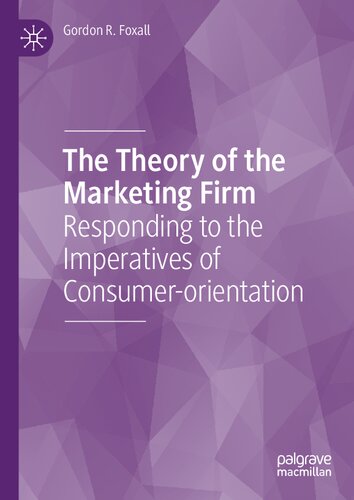

Most ebook files are in PDF format, so you can easily read them using various software such as Foxit Reader or directly on the Google Chrome browser.
Some ebook files are released by publishers in other formats such as .awz, .mobi, .epub, .fb2, etc. You may need to install specific software to read these formats on mobile/PC, such as Calibre.
Please read the tutorial at this link: https://ebookbell.com/faq
We offer FREE conversion to the popular formats you request; however, this may take some time. Therefore, right after payment, please email us, and we will try to provide the service as quickly as possible.
For some exceptional file formats or broken links (if any), please refrain from opening any disputes. Instead, email us first, and we will try to assist within a maximum of 6 hours.
EbookBell Team

0.0
0 reviewsThe marketing firm is that business organisation which responds to the imperatives of consumer-orientation. Its style of management is marked by its adherence to the criteria of goal separation, participation in marketing transactions, entrepreneurial sovereignty and reciprocal entrepreneurial management, all of which are explored in this pioneering book. It assumes the proposition, uncontroversial enough to marketing academics and students, that contemporary firms can survive and prosper – achieve their financial goal, be it the maximization of profit or sales or growth – only if they respond appropriately to those imperatives: specifically, the forces that promote consumer discretion and consumer sophistication. Surprisingly, however, theories of the firm, based on economics, strategic management or behavioural science, show scant recognition of this observation which is abundantly clear from the most elementary treatment of marketing management. Renowned scholar Gordon R. Foxall argues that this proposition should form the starting point of a theory of the firm and explores its implications for marketing theory in the light of the findings of consumer behaviour analysis and research on the marketing firm. Hence, while pursuing a competence theory of the marketing firm based on the idealised implications of the imperatives of consumer-orientation, the book rests its conception on a groundwork of empirical evidence on consumer behaviour and corporate action.